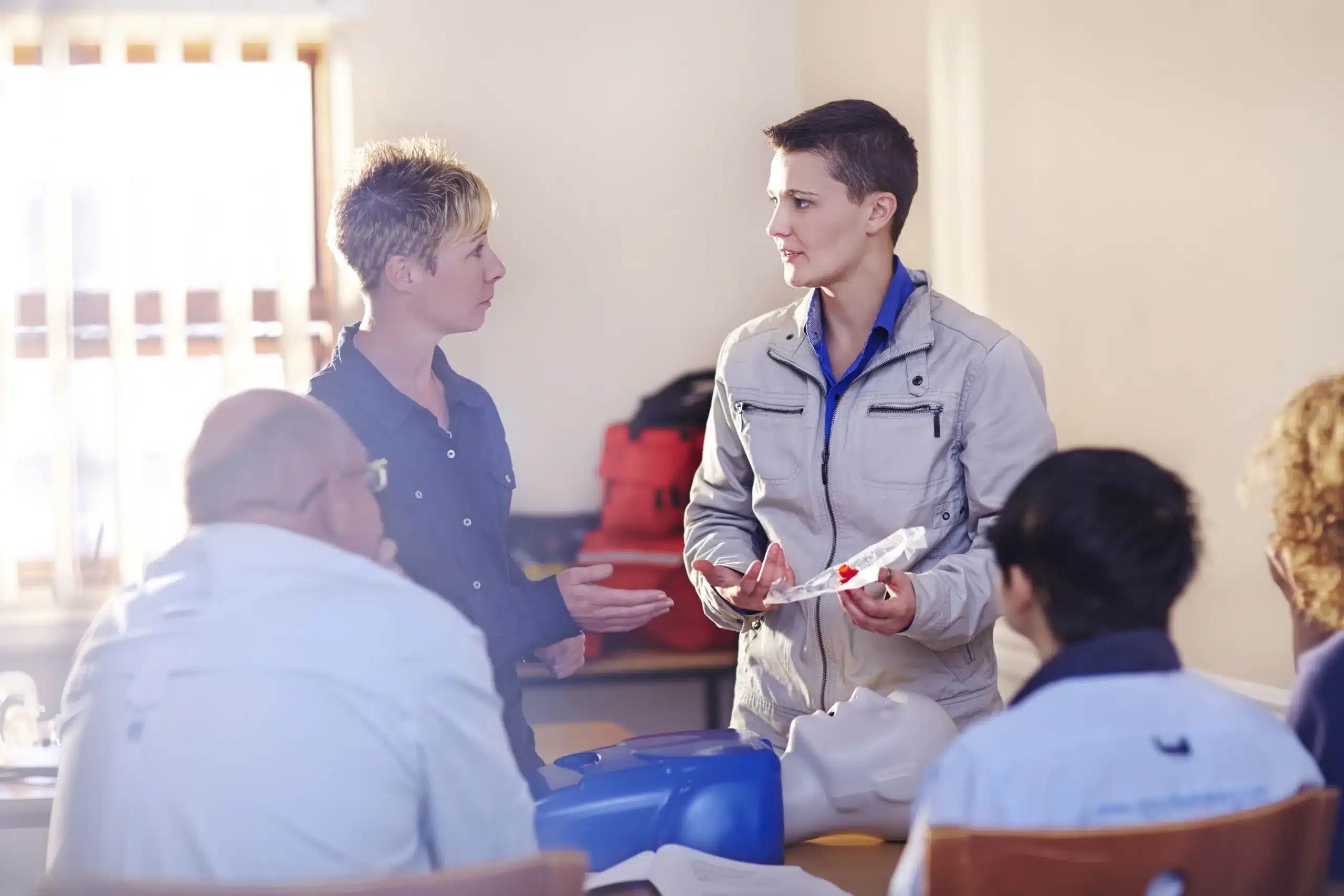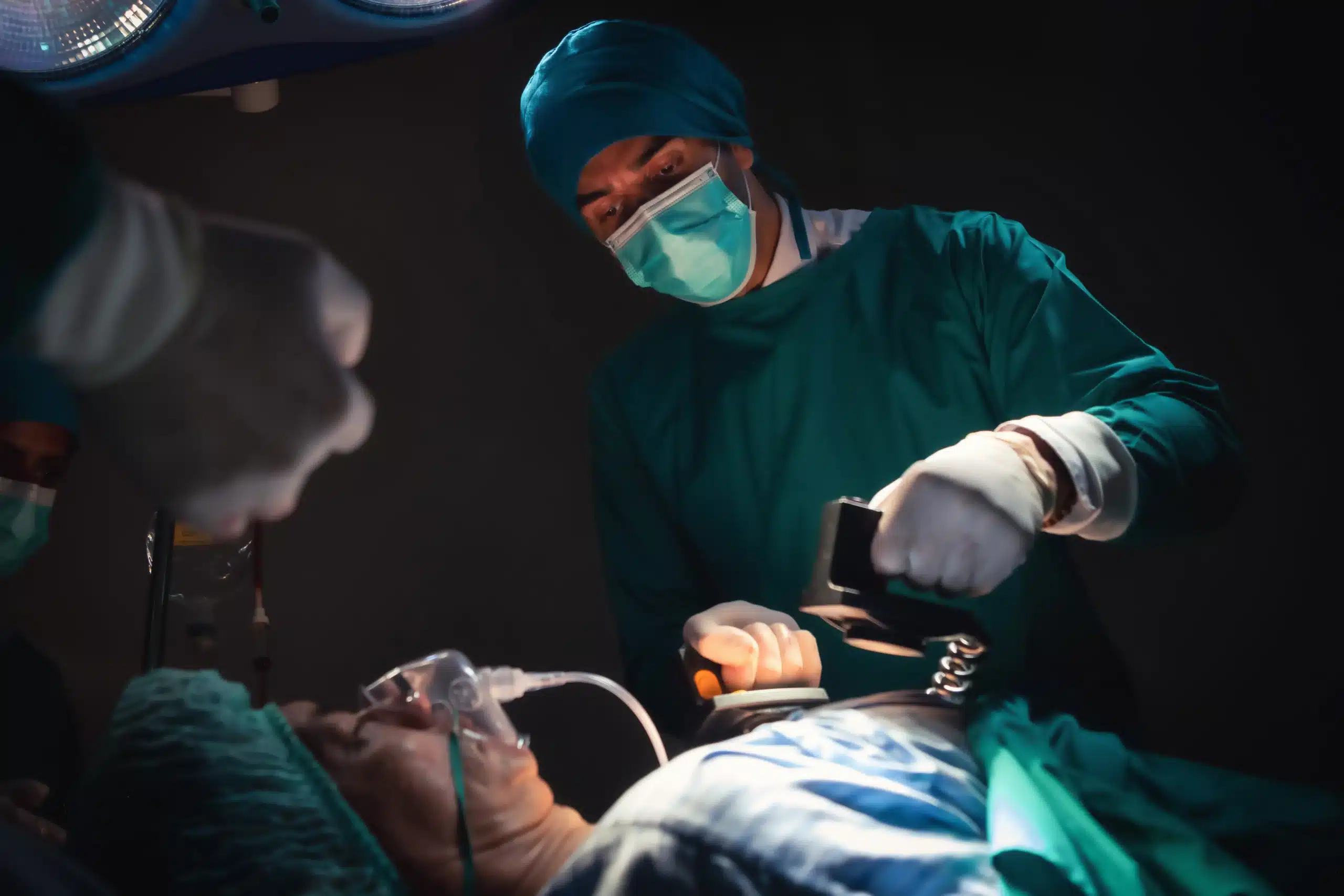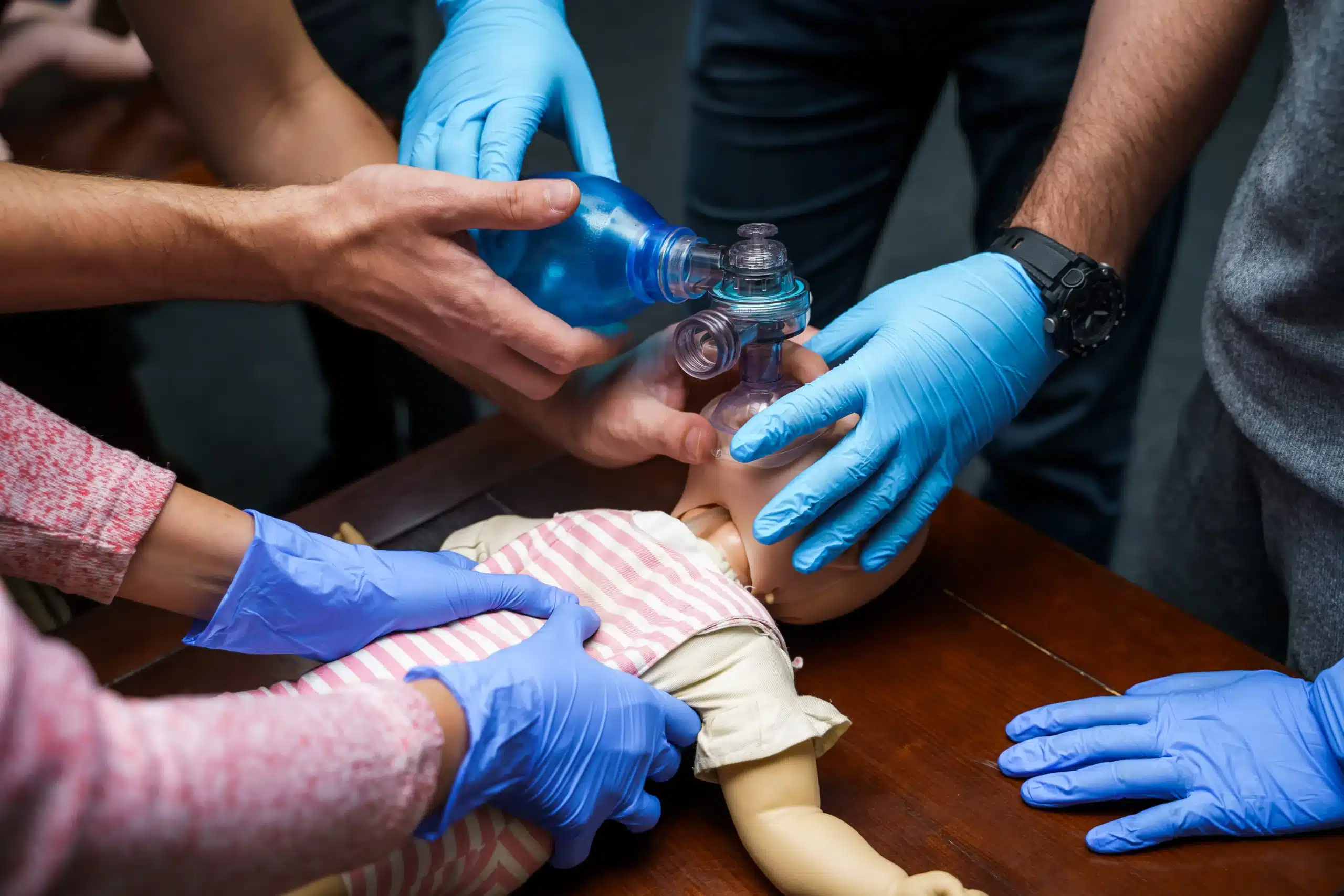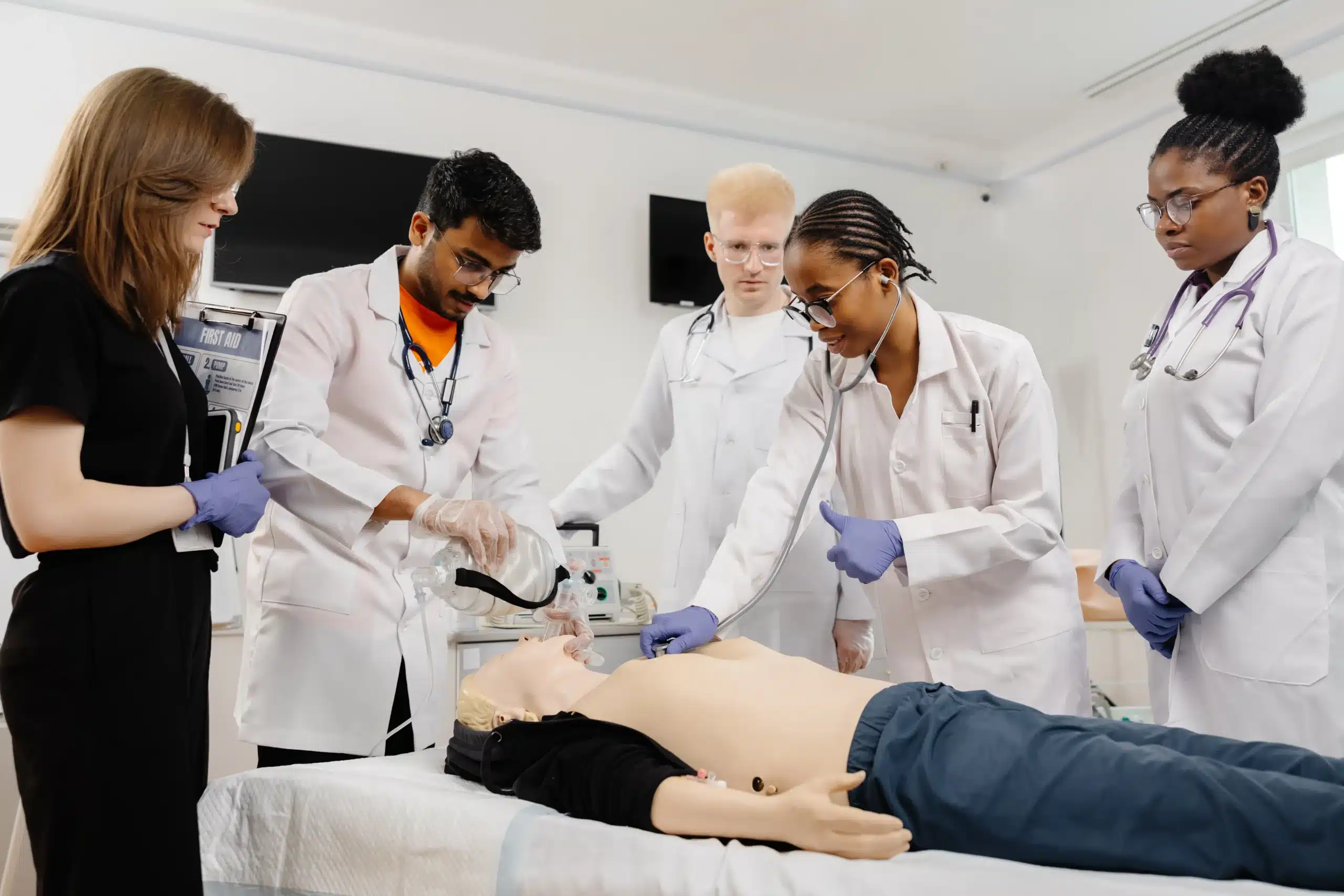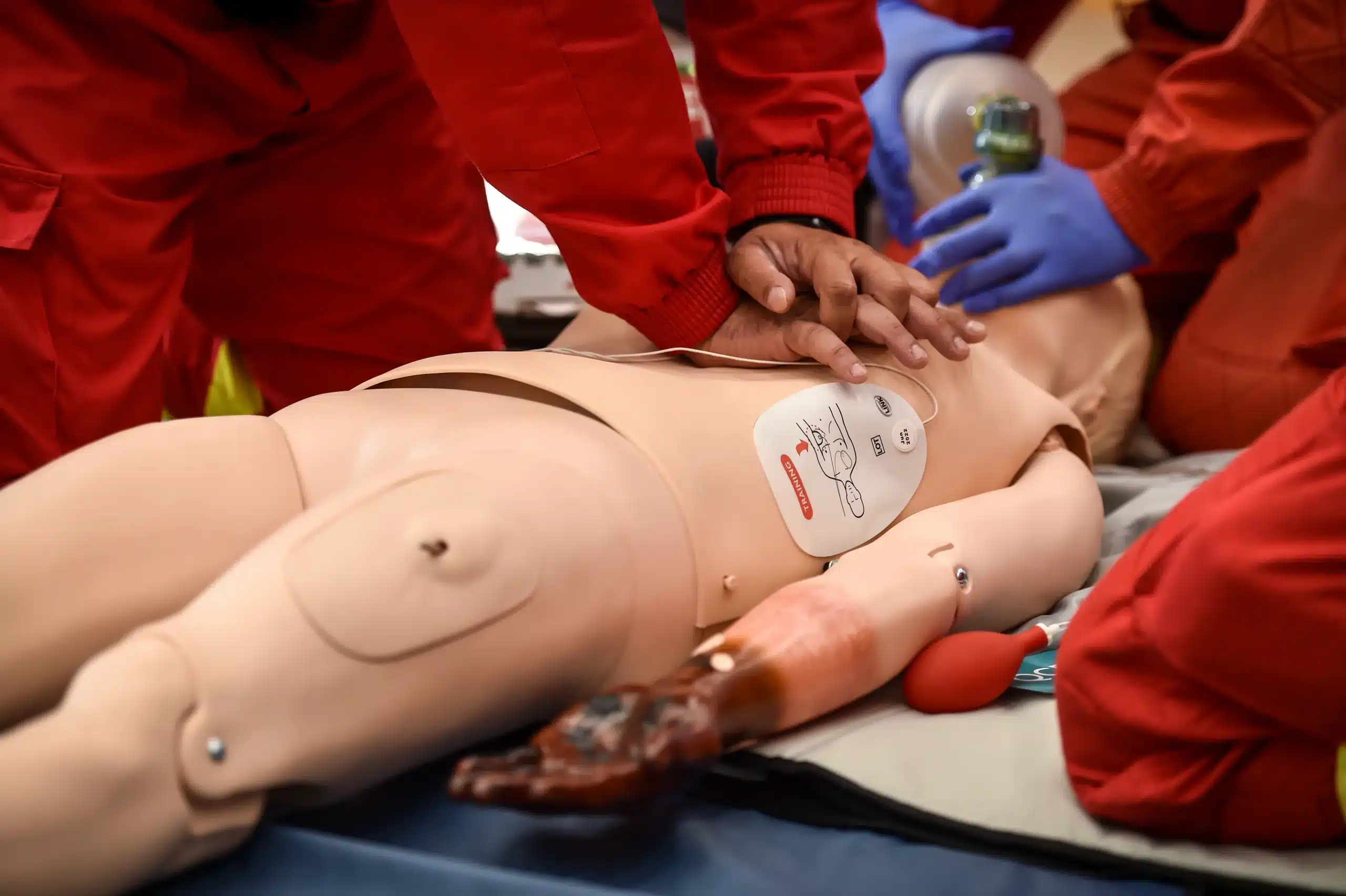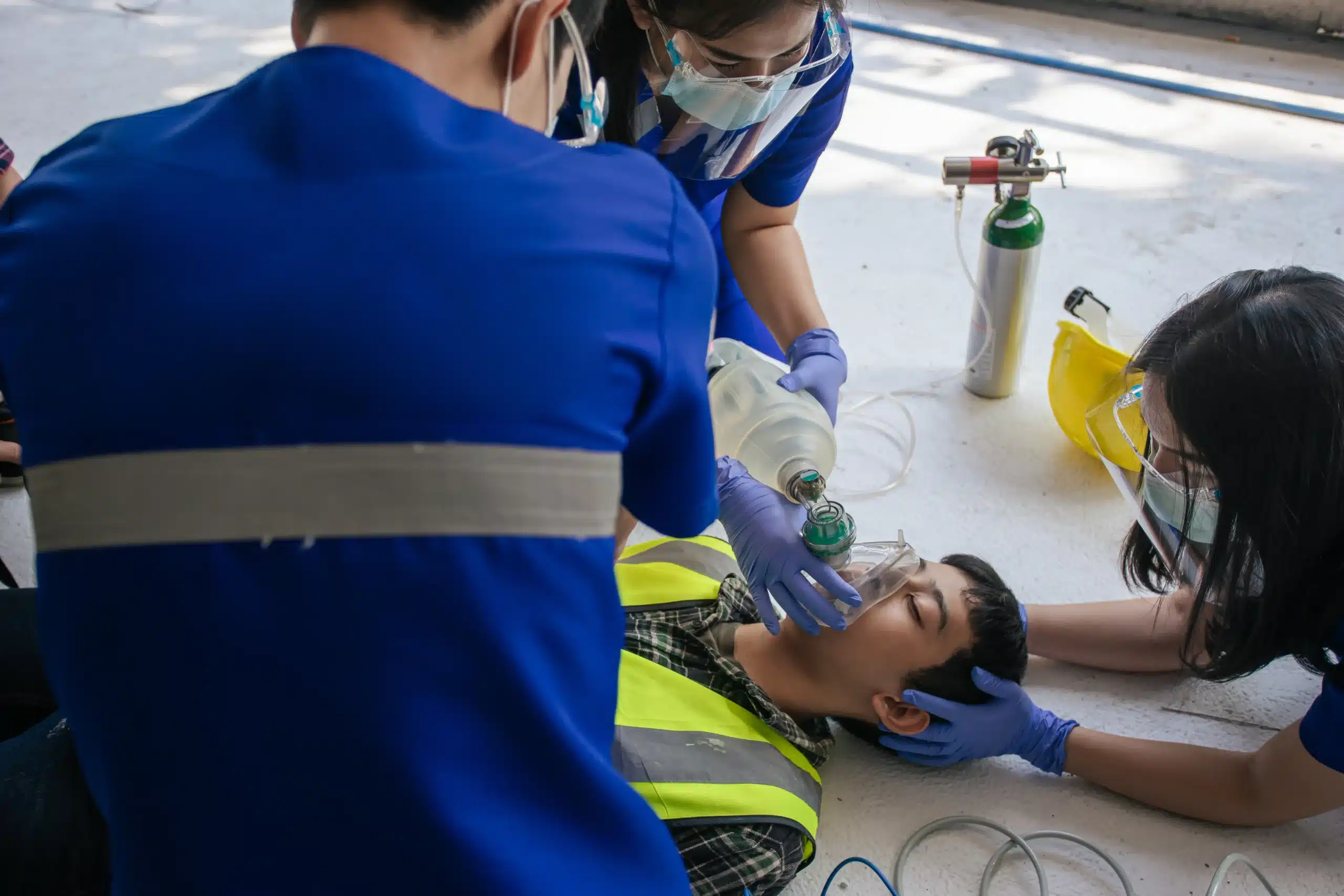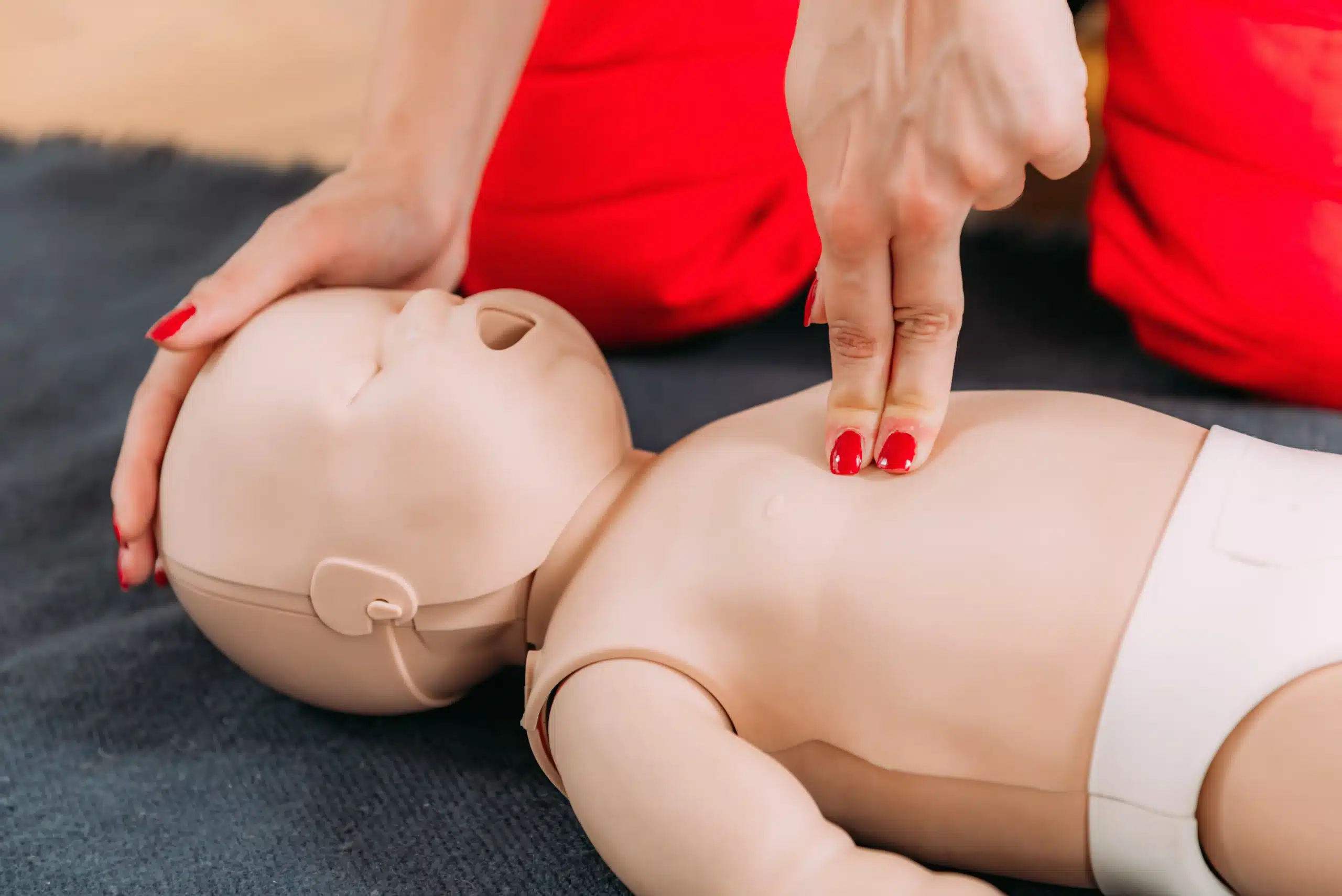As a healthcare provider in San Francisco, your skills and knowledge can make all the difference in life-or-death situations. ACLS certification equips you with the advanced techniques needed to manage cardiovascular emergencies effectively. But finding the right ACLS courses in San Francisco can be tricky. This guide simplifies the process, providing clear, actionable information to help you choose the best course for your needs. We’ll explore various providers, course formats, costs, and prerequisites, empowering you to take the next step in your professional development.
Key Takeaways
- ACLS is essential for healthcare providers: It provides the knowledge and skills to handle cardiovascular emergencies, improving patient outcomes through early recognition and intervention. Find a trusted provider like Safety Training Seminars for high-quality training.
- Choosing an ACLS course requires careful consideration: Evaluate factors like course format (in-person, online, or hybrid), duration, cost, and prerequisites such as BLS certification to find the best fit for your needs.
- Maintain your ACLS skills through practice and continued learning: Hands-on simulations, networking with peers, and regular recertification are key to staying sharp and prepared for real-world emergencies.
What is ACLS?
What is ACLS?
ACLS stands for Advanced Cardiovascular Life Support. It’s a set of standardized protocols and algorithms designed to manage life-threatening cardiovascular emergencies. These emergencies can range from cardiac arrest and stroke to acute myocardial infarction (heart attack). ACLS emphasizes early recognition and intervention to improve patient outcomes. The system uses advanced techniques like electrocardiogram (ECG) interpretation, airway management, and medication administration. ACLS training teaches healthcare professionals how to work effectively as a team during these critical situations. This includes clear communication, defined roles, and coordinated efforts to provide the best possible care. You can find more information on our ACLS courses in San Francisco.
Who Needs ACLS Certification?
ACLS certification is essential for many healthcare professionals. It’s often a requirement for those working in emergency rooms, intensive care units (ICUs), and other critical care settings. Specifically, physicians, nurses, paramedics, respiratory therapists, and other healthcare providers involved in emergency response and acute patient care typically need this certification. While not always mandatory, ACLS certification can also benefit professionals in other areas of healthcare who may encounter cardiovascular emergencies. This proactive approach ensures they’re equipped to handle such situations effectively. If you’re unsure whether you need ACLS certification, check with your employer or relevant licensing board. You can also explore our ACLS certification options to learn more.
Top ACLS Course Providers in San Francisco
Finding the right ACLS course is an important first step. Here are a few providers to consider in San Francisco:
Safety Training Seminars
Get Affordable Pricing and Daily Classes
Safety Training Seminars offers competitive prices for BLS, ACLS, PALS, CPR, and First Aid classes in the San Francisco Bay Area. You can explore their low price guarantee and view their daily class schedules online. Their ACLS courses are conveniently located in San Francisco’s Nob Hill neighborhood.
Explore Our Comprehensive Curriculum
Safety Training Seminars provides a comprehensive curriculum based on American Heart Association guidelines for CPR, BLS, ACLS, and PALS courses. Visit their website for more information on their course offerings.
Learn at a Woman-Owned AHA Training Center
Safety Training Seminars is a woman-owned and operated AHA Training Center committed to providing high-quality instruction. Learn more about their training center and courses.
HeartStart CPR
HeartStart CPR offers AHA ACLS certification and recertification classes throughout the San Francisco Bay Area, with classes in San Francisco, San Jose, Oakland, Pleasant Hill, and San Ramon. Visit their website for details and to register.
UCSF Kanbar Center
The UCSF Kanbar Center provides AHA courses in BLS, PALS, and ACLS. These courses are primarily designed for UCSF students, staff, and faculty. Learn more on the UCSF Medical Education website.
Rescue with CPR
Rescue with CPR offers AHA certification classes in ACLS, BLS, PALS, and NRP throughout the San Francisco Bay Area. Explore their course catalog for more information.
ACLS-Algorithms
ACLS-Algorithms is a resource for healthcare professionals, emphasizing the importance of AHA-approved ACLS certification for most US hospitals and emergency services. Visit their website for more information on certification requirements.
Course Formats, Duration, and Costs
Finding the right ACLS course means considering a few key things: the format, how long it takes, and the cost. Let’s break these down to help you choose wisely.
Choose In-Person, Online, and Hybrid Options
ACLS courses in San Francisco offer options to fit your learning style and schedule. You can choose in-person classes for hands-on training and direct interaction with instructors. If you prefer self-paced learning and the convenience of accessing materials from anywhere, online courses might be a better fit. Hybrid courses combine the best of both worlds. For example, some providers, like the UCSF Kanbar Center, offer ACLS and PALS courses with online and in-person components, while BLS is usually entirely in-person. Check with your chosen provider, like Safety Training Seminars, to see what format options they have.
Find Typical Course Durations
How long an ACLS course takes depends on the provider and whether you’re getting certified for the first time or renewing your certification. Initial certification usually takes about 12 hours, sometimes less if you do it online. Recertification usually takes less time, often around 6 hours. Resources like ACLS.com can give you a general idea, but always double-check the specific duration with your course provider. ACLS certification is good for two years.
Compare Pricing for Initial Certification and Renewal
The cost of ACLS courses varies depending on the provider, location, and whether you need initial certification or renewal. Initial certification is typically more expensive, around $260, while renewal courses are usually around $190. Compare pricing from different providers, like HeartStart CPR, to find the best deal. Also, ask if the provider offers any discounts or group rates. Safety Training Seminars offers a low price guarantee, so you know you’re getting a competitive price.
Get Same-Day Certification
If you need your certification quickly, some ACLS course providers offer same-day certification after you successfully complete the course. Ask about this option when you’re choosing a provider. It can save you time and make things easier.
Prerequisites and Course Requirements
Before you sign up for an ACLS course in San Francisco, take a look at the key requirements. Understanding these prerequisites will help you prepare and get the most out of your training.
Obtain Current BLS Certification
You’ll need a current BLS certification to enroll in an ACLS course. This foundational knowledge creates a baseline for the advanced life support techniques you’ll learn in ACLS. ACLS builds upon basic life support skills, so having a valid BLS Provider card is essential. These certifications are typically valid for two years before you need recertification. Make sure yours is up-to-date before your ACLS class begins. You can find BLS courses in San Francisco through providers like Safety Training Seminars.
Confirm Healthcare Professional Status
ACLS certification is primarily designed for healthcare professionals. This includes doctors, nurses, paramedics, and other medical personnel who may need to respond to cardiac arrest or other cardiovascular emergencies. Most hospitals and emergency services require AHA-approved ACLS certification, so it’s important to confirm your employer’s requirements before enrolling.
Gather Required Materials and Prepare
Some ACLS courses require specific materials, like the ACLS Provider Manual. Check with your chosen provider—for example, contact Safety Training Seminars—to see if you need to purchase any materials in advance. Often, ebook versions are acceptable. If you’re picking up physical materials, confirm the provider’s office hours to ensure they’re available when you can get there. Preparing these resources beforehand will help you follow along with the course content and make the most of your learning experience.
Maximize Your ACLS Learning Experience
Getting your ACLS certification is a significant step, but truly mastering these lifesaving skills requires ongoing effort. Here’s how to make the most of your ACLS training and maintain your proficiency:
Overcome Common Challenges
Healthcare professionals face split-second decisions in emergencies. One helpful tip from Cascade Training emphasizes focusing on problem-solving and adaptability during your training. Practice different scenarios and consider how you’d adjust your approach based on the specific circumstances. This will build your confidence and prepare you for real-world situations.
Practice with Hands-On Simulations
Hands-on practice is essential for developing the muscle memory and critical thinking required in emergencies. Look for courses, like the ACLS Instructor Essentials course, that incorporate realistic simulations. These simulations allow you to apply your knowledge in a safe environment, refine your techniques, and gain valuable experience.
Find Flexible Learning Options
Juggling work, family, and other commitments can make finding time for professional development tough. Fortunately, many providers offer flexible learning options. Safety Training Seminars, for example, offers ACLS classes seven days a week. Explore in-person, online, and hybrid options to find a format that fits your lifestyle.
Network with Fellow Healthcare Providers
Your ACLS course is a great opportunity to connect with other healthcare professionals. Share experiences, discuss best practices, and build relationships that can support your ongoing learning. Connecting with peers can provide valuable insights and recommendations. Finding the right course can be overwhelming, as Bay Area CPR points out.
Recertify Regularly
ACLS skills require regular refreshing. ACLS.com reminds us that recertification is typically required every two years. Plan and schedule your recertification course in advance to maintain your credentials and ensure you’re always prepared to provide the best possible care. Many providers offer streamlined recertification courses.
Related Articles
- ACLS HeartCode SF: Your Complete Certification Guide – San Francisco CPR Classes
- Online ACLS Classes Oakland: Your Guide – San Francisco CPR Classes
- ACLS Certification & Renewal Courses – San Francisco CPR Classes
- ACLS Renewal in San Francisco: The Ultimate Guide – San Francisco CPR Classes
- ACLS Renewal San Francisco: Your Easy Guide – San Francisco CPR Classes
Frequently Asked Questions
Why is ACLS certification important?
It’s a crucial credential for healthcare providers who might encounter life-threatening cardiovascular emergencies. Having this training means you’re prepared to provide timely, effective care, potentially saving lives. It also demonstrates your commitment to professional development and high-quality patient care. Many healthcare settings require ACLS certification for specific roles.
How do I choose the right ACLS course in San Francisco?
Think about your learning style and schedule. Do you prefer in-person interaction or the flexibility of online learning? Consider factors like cost, location, and the provider’s reputation. Look for courses that offer hands-on practice and align with the latest American Heart Association guidelines. Reading reviews and comparing options can help you make an informed decision.
What are the typical prerequisites for an ACLS course?
Generally, you’ll need a current BLS (Basic Life Support) certification before starting ACLS training. This ensures you have the foundational knowledge required for advanced concepts. Most ACLS courses are designed for healthcare professionals, so confirming your eligibility is a good idea. Some providers might also require you to have specific study materials.
How can I make the most of my ACLS training?
Engage actively during the course, ask questions, and participate in simulations. Practice regularly to build your confidence and reinforce what you’ve learned. Connect with other healthcare providers to share experiences and learn from each other. Consider joining professional organizations or online communities to stay updated on best practices.
How often do I need to renew my ACLS certification?
ACLS certification is typically valid for two years. It’s essential to recertify before your current certification expires to maintain your credentials and stay up-to-date with the latest guidelines. Many providers offer recertification courses that are shorter and more focused than initial certification courses. Plan and schedule your recertification in advance to avoid any gaps in your qualification.


